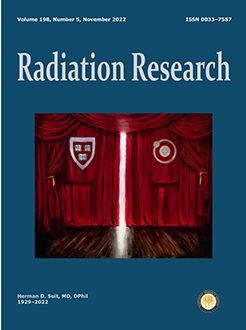Animal models are necessary to demonstrate the efficacy of medical countermeasures (MCM) to mitigate/treat acute radiation syndrome and the delayed effects of acute radiation exposure and develop biodosimetry signatures for use in triage and to guide medical management. The use of animal models in radiation research allows for the simulation of the biological effects of exposure in humans. Robust and well-controlled animal studies provide a platform to address basic mechanistic and safety questions that cannot be conducted in humans. The U.S. Department of Health and Human Services has tasked the National Institute of Allergy and Infectious Diseases (NIAID) with identifying and funding early- through advanced-stage MCM development for radiation-induced injuries; and advancement of biodosimetry platforms and exploration of biomarkers for triage, definitive dose, and predictive purposes. Some of these NIAID-funded projects may transition to the Biomedical Advanced Research and Development Authority (BARDA), a component of the Office of the Assistant Secretary for Preparedness and Response in the U.S. Department of Health and Human Services, which is tasked with the advanced development of MCMs to include pharmacokinetic, exposure, and safety assessments in humans. Guided by the U.S. Food and Drug Administration's (FDA) Animal Rule, both NIAID and BARDA work closely with researchers to advance product and device development, setting them on a course for eventual licensure/approval/clearance of their approaches by the FDA. In August 2020, NIAID partnered with BARDA to conduct a workshop to discuss currently accepted animal care protocols and examine aspects of animal models that can influence outcomes of studies to explore MCM efficacy for potential harmonization. This report provides an overview of the two-day workshop, which includes a series of special topic presentations followed by panel discussions with subject-matter experts from academia, industry partners, and select governmental agencies.
How to translate text using browser tools
24 August 2022
Animal Care in Radiation Medical Countermeasures Studies
Carmen I. Rios,
Brynn A. Hollingsworth,
Andrea L. DiCarlo,
John E. Esker,
Merriline M. Satyamitra,
Toby A. Silverman,
Thomas A. Winters,
Lanyn P. Taliaferro





